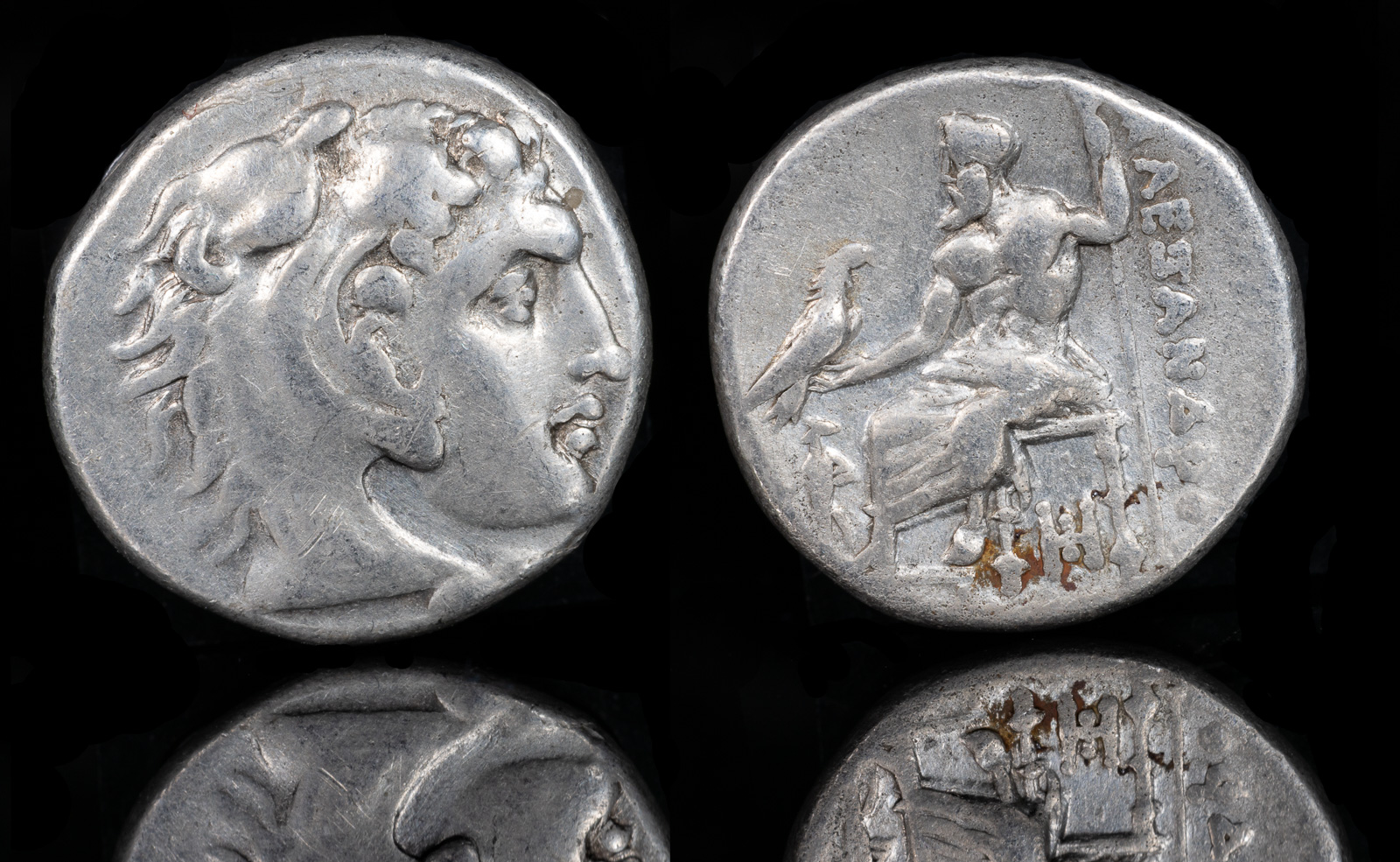
Alexander the Great
AR Drachm 16mm, 4.21 g, 12h
Abydos mint. Struck under Kalas or Demarchos, circa 325-323 BCE
Price 1503; ADM II Series I
As far as we know, Kalas led an unspectacular but luxurious life. His father was Harpalus, who was close with Alexander the Great but, when given a post used it to widen his own pocket. He was caught twice of doing this, then eventually fled to Greece, where he had a number of escapades before eventually being executed in Crete.
One of Kalas’ first forays was under Philip II in an ill-fated expedition that was destroyed by Memnon of Rhodes shortly after Philip’s death. Laster on, he joined with Alexander in his expedition and had infinitely more success, and some retribution, leading the famed Thessalian cavalry (named by Diodorus Siculus as the Cavalry of the Year) in the Battle of the Granicus.
Perhaps due to his success, he received the satrapies of Phrygia and Paplagonia. During this time, he attempted to add Bithynia to his and Alexander‘s territories, but was defeated by Bas, grandfather to Nikomedes I. Perhaps Kalas died in this expedition. We don’t really know, but before Alexander died Demarchos succeeded him as satrap.
Memnon of Rhodes is tasked by Darius III with taking Kyzikos and nearly does. It is defended by Kalas.
Philip II sends Parmenion, Attalos, Amyntas, and Kalas to the Troad to prepare for an invasion. They are defeated by Memnon of Rhodes.
Kalas appointed hipparch of the Thessalian cavalry by Alexander III.
Kalas assigned the satrapy of Hellespontine Phrygia by Alexander III.
May
The Battle of the Granicus, during which Alexander the Great defeated the Persians under Darius III, and after which Adramytteion and Kaunos come under his control. Kalas participates with the Thessalian cavalry under Parmenion. Perdikkas serves on the right.
Kalas, Antigonos Monophthalmos, and Balakros supress Persian resistance to Macedonian authority.
Rough estimate for the death or removal of Kalas as satrap of Hellespontine Phrygia. Demarchos becomes satrap.